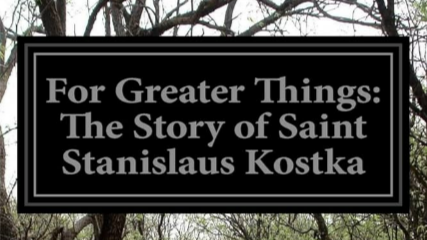Chapter IX-For Greater Things
byChapter IX – For Greater Things brings us to a crucial turning point in Stanislaus Kostka’s journey—his determined response to what he believes is a divine calling. Following a miraculous vision and healing attributed to the Virgin Mary, Stanislaus feels compelled to join the Society of Jesus. Convinced this is no passing inspiration but a command from heaven, he seeks out Father Doni, a Jesuit priest, to explore the next steps. Though Father Doni listens with sympathy, he knows that joining the Society involves more than spiritual zeal. Stanislaus needs either his father’s formal approval or must reach legal age, requirements that present formidable barriers. With unwavering trust in divine providence, he approaches the Jesuit Provincial, Father Laurence Maggi. But Maggi, mindful of past tensions caused by accepting underage novices without family consent, denies the request. The Provincial urges caution and patience—neither of which satisfies Stanislaus’s burning desire to fulfill what he sees as a sacred mission.
Unwilling to abandon his pursuit, Stanislaus turns to someone who might have more influence: Cardinal Commendoni, the papal legate in Vienna. Their earlier meeting had left a strong impression, and Stanislaus hopes the Cardinal might now advocate on his behalf. When he presents his request, the Cardinal is moved by the young man’s sincerity and devotion. He agrees to approach Father Maggi, hoping his status might help lift the administrative barrier. But even the Cardinal’s endorsement cannot shift the Provincial’s stance. Father Maggi stands firm in his belief that Church rules must be upheld, despite his admiration for Stanislaus’s spiritual maturity. The Cardinal, seeing the Provincial’s resolve, eventually backs away. For Stanislaus, this second rejection is painful—but not paralyzing. What would have discouraged most only deepens his resolve.
Rather than surrender to disappointment, Stanislaus begins to quietly consider a new course of action. He knows that staying in Vienna, under the control of his domineering family and surrounded by obstacles, will lead to spiritual stagnation. His internal urgency becomes stronger, driven not by emotion but by fear of disobedience to God’s will. He feels he has been chosen for something higher, and that waiting too long might mean turning away from grace. The clarity of his sense of vocation strengthens him. He decides he must leave Vienna entirely to seek a Jesuit community that would receive him—not as a disobedient son, but as a soul ready for consecration. It is not a decision made in haste, but one grounded in prayer and spiritual discernment.
The courage behind his plan is matched by his humility. Stanislaus does not lash out at those who refused him. Instead, he prays for their understanding and prepares himself for the difficult journey ahead. His departure must be silent and selfless, a sacrifice not only of comfort but of reputation and security. Every step will be uncertain, but he trusts that God, who had called him so clearly, will make a way. The challenges he faces underscore the depth of his character. He is not simply idealistic; he is profoundly disciplined. His willingness to endure hardship without complaint and to remain respectful even in the face of rejection reveals a maturity far beyond his years.
As the chapter closes, we are left with the image of a young man unwavering in the face of institutional caution and familial pressure. Stanislaus’s example is not one of defiance, but of faithful perseverance. He does not seek conflict with his father or sympathy from others—only the freedom to answer God’s call. His story in this chapter reflects the timeless tension between human authority and divine prompting. Yet what sets Stanislaus apart is his refusal to let fear, pride, or delay distract him from his purpose. He becomes a model of spiritual integrity, showing that true vocation demands not only clarity but action. Through his unwavering commitment, Stanislaus reveals that when one hears the call to greater things, the path forward—though difficult—is always worth taking.

